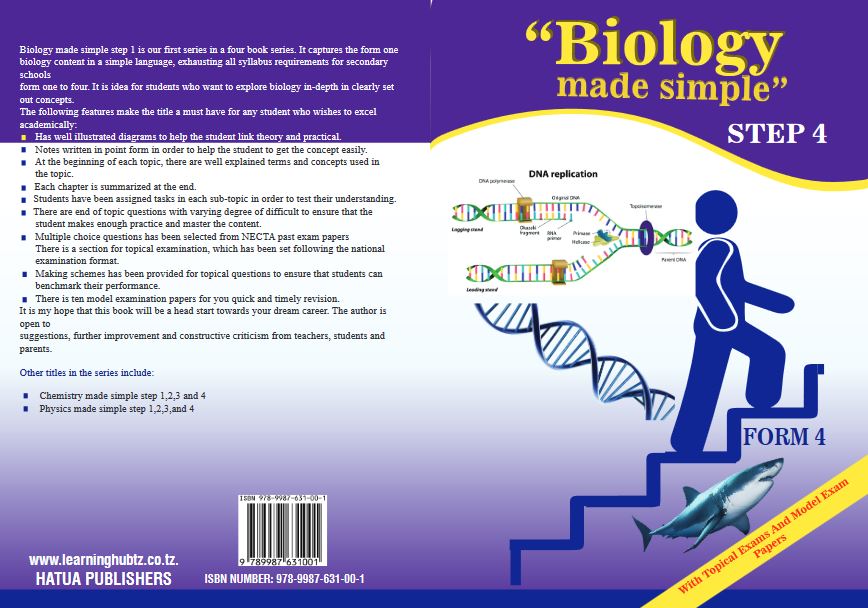THE UNITED REPUBLIC OF TANZANIA, PRESIDENT’S OFFICE REGIONAL ADMINISTRATION AND LOCAL GOVERNMENT
SECONDARY EXAMINATION SERIES
FORM ANNUAL EXAMINATION
BUSINESS STUDIES – NOVEMBER- 2025
TIME: 2:30 HOURS
INSTRUCTIONS
- This paper consists of Sections A, B, and C with a total of ten (10) questions .
- Answer all questions in Sections A and B, and three (3) questions in Section C. Question 10 is compulsory.
- Section A carries 15 marks , Section B carries 40 marks , and Section C carries 45 marks .
- Use blue or black ink in writing, except for drawings which must be done in pencil .
- Communication devices, calculators, and unauthorized materials are not allowed in the assessment room.
- Write your Assessment Number/Full Name at the top right-hand corner of every page.
SECTION A (15 Marks)
Answer all questions in this section
For each of the items (i) – (x), choose the correct answer from the given alternatives and write its letter in the box provided.
(i) Who starts, creates, and manages a new business?
- Leader
- Manager
- Professional
- Entrepreneur
(ii) One of the following DOES NOT explain the abilities possessed by an entrepreneur:
- Innovation
- Invention
- Risk avoidance
- Motivation
(iii) What makes small-scale businesses vital in the country’s economy?
- Give an outlet to entrepreneurs
- Provide specialist support to large-scale businesses
- Innovators of new products
- All of the above
(iv) Which informal means do entrepreneurs use to gather information for further improvement in their business?
- Marketing
- Primary research
- Entrepreneurial networking
- Informal debates
(v) Mayala is an entrepreneur who dedicates and sacrifices his time, money, and energy to succeed in business. Which attribute does he show?
- Innovativeness
- Commitment
- Perseverance
- Calculated risk taking
(vi) Which is the main feature of an entrepreneur?
- Innovative
- Risk taking
- Decision making
- Hard working
(vii) The process through which entrepreneurs convert business opportunities into marketable solutions is considered as:
- Innovation
- Risk taking
- Creation
- Mobilizing and allocation of resources
(viii) Ms. Mashiko owns a retail shop and succeeded because she believes in herself and her goals. Which characteristic is this?
- Hard working
- Goal setter
- Self-confidence
- Creative
(ix)The following are roles of an entrepreneur, EXCEPT:
- Bringing together factors of production
- Identifying opportunities
- Assuming uncertainty of the future
- Promoting obsolete technologies
(x) Sir Komba buys large maize stock despite falling price speculation. Which entrepreneurship characteristic drove him?
- Creative and imaginative thinking
- Risk taking
- Perseverance and commitment
- Innovativeness
2. Match descriptions in List A with the correct form of entrepreneurship in List B . Write the letter of the correct answer beside the item number.
| List A | List B |
| i. Ability to search jointly for a mutually acceptable solution through discussion and bargaining. ii. Determination to strive for excellence all the time. iii. Courage and self-confidence to engage in business after weighing risks. iv. Ability to connect with people, identify opportunities, and promote goods or services. v. Intemal drive to excel in achieving self-imposed goals. |
|
SECTION B (40 Marks)
Answer all questions in this section
3. Assume you are shortlisted for an interview at Job Creators Company . Explain the following concepts:
- Factors of Production
- Entrepreneurial Skills
- Good
- Business Entrepreneurship
- Formation of a Sole Proprietorship
4. Briefly explain the concepts of Scarcity and Opportunity Cost .
5. Differentiate the following:
- Entrepreneurship and Entrepreneur
- Sole Proprietorship and Sole Proprietor
- Business and Business Studies
- Limited liability and Unlimited liability
- Intrapreneurship and Intrapreneur
6. Enumerate five qualities of a Sole Trader .
SECTION C (45 Marks)
Answer any three (3) questions. Question 10 is compulsory.
7. Critically analyze five (5) benefits of entrepreneurship.
8. Explain to Baba Mwajuma the relationship between Business Studies and any five (5) other school subjects.
9. (Compulsory) With the aid of a diagram, explain the business processes Sir Business must undertake to reach final consumers (students).
10. Case Study Juliana is a talented tailor who, after saving money, opened her own tailoring business. She makes all decisions, retains all profits, and registered the business legally. She interacts directly with customers, who value her friendly service. Now she plans to expand and employ others.
Questions:
- What made Juliana start the tailoring business?
- What type of business did Juliana start, and how does she benefit?
- What value does the business add to the community?
FORM ONE BUSINESS EXAM SERIES 229
FORM ONE BUSINESS EXAM SERIES 229
Hub App
 For Call,Sms&WhatsApp: 255769929722 / 255754805256
For Call,Sms&WhatsApp: 255769929722 / 255754805256
 For Call,Sms&WhatsApp: 255769929722 / 255754805256
For Call,Sms&WhatsApp: 255769929722 / 255754805256







